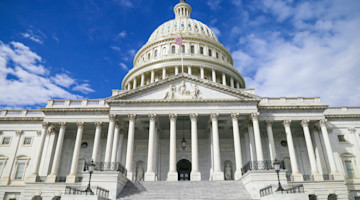Now that the election is over, attention on Capitol Hill has shifted to what can be accomplished in the lame-duck session – the time after the election until the 116th Congress concludes on Jan. 3, 2021.
COVID-19 Stimulus Package There was anticipation for a restart of the coronavirus stimulus negotiations following the election, but that may have been wishful thinking. Partisan rancor continues to block any prospects for a bipartisan deal. Last week, Senate Majority Leader Mitch McConnell, R-Ky., said he is no longer relying on Treasury Secretary Steven Mnuchin to reach an agreement with House Democrats. Instead, the top Republican will now lead negotiations in the Senate and is squarely at odds with House Speaker Nancy Pelosi, D-Calif. The package's size and scope are huge obstacles, with neither side moving even a little toward a compromise. Emboldened by the election results, House Democrats are sticking with their massive $2.4 trillion bill, while the GOP is just as firm on a $500-billion, scaled-back package. Disagreements over state and local government aid and liability protection from COVID-related lawsuits are lines in the sand for Democrats and Republicans, respectively.
Government Spending In September, Congress passed a continuing resolution to extend government funding through Dec. 11 at mostly FY20 rates. Now it's time to pay the piper. Twelve appropriations bills need to be approved by Congress and signed by President Donald Trump to prevent a shutdown. Before November, the House advanced all 12 of its appropriations bills through the committees of jurisdiction and approved 10 of them on the House floor. It took until last week for the Senate to introduce any of its measures. Both Majority Leader McConnell and Speaker Pelosi want to reach agreements on all 12 bills and pass them together as an omnibus spending bill by the deadline instead of approving another continuing resolution. Time and a willingness to compromise are the factors that will determine the outcome.





